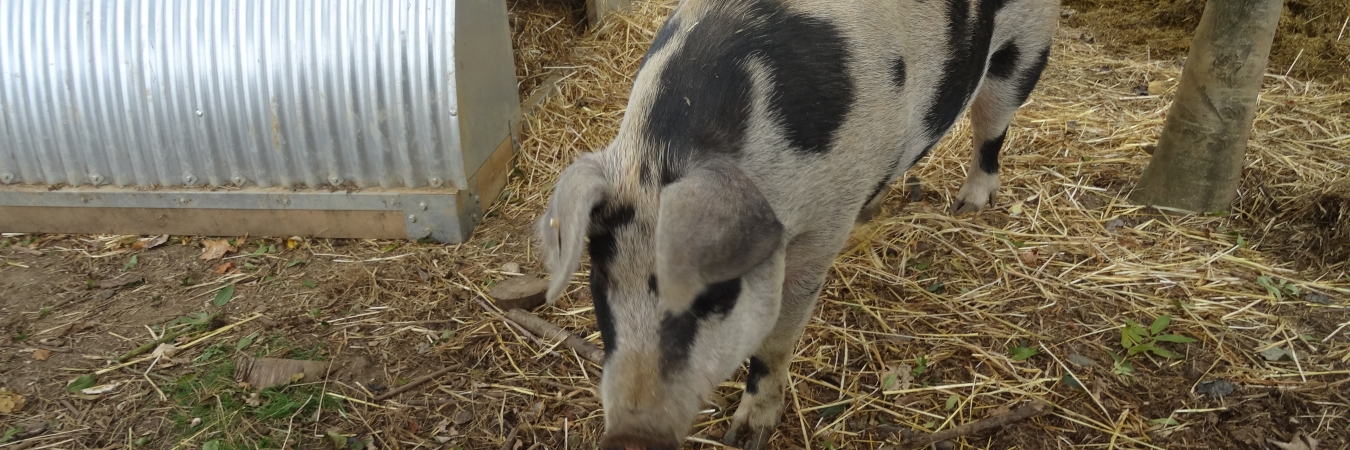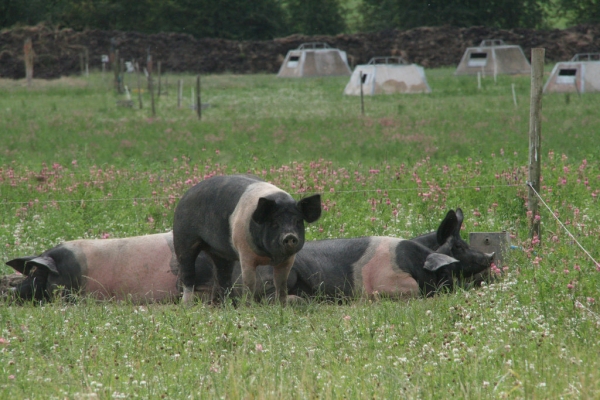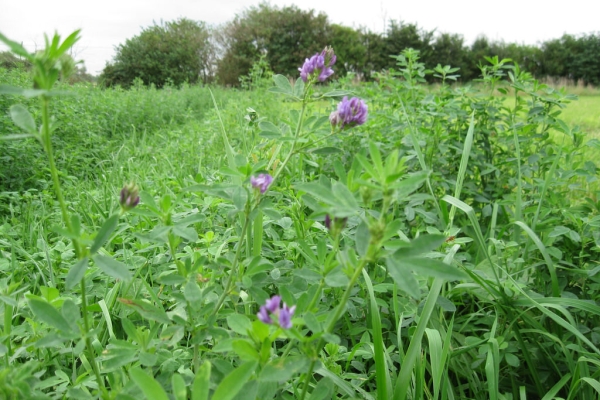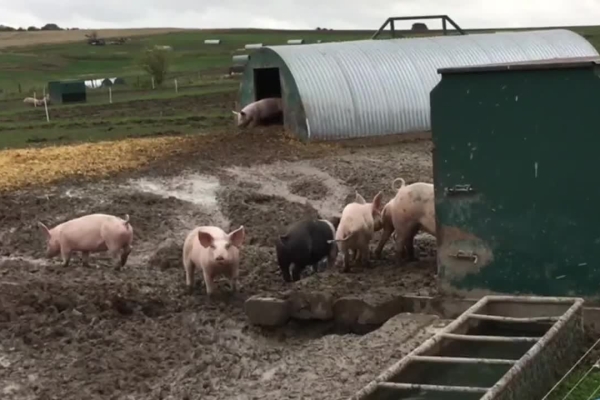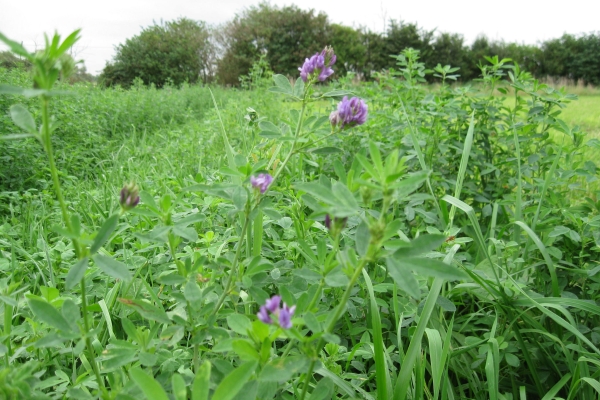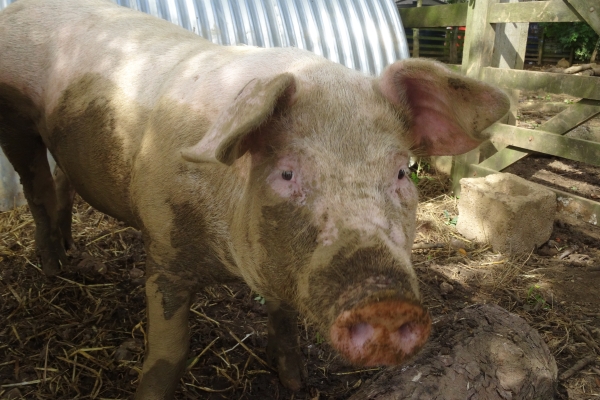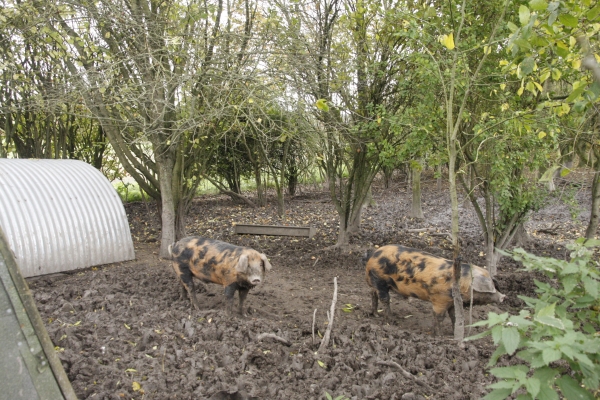Foraging of pigs in outdoor areas
(OK-Net Ecofeed Practice Abstract)
Resource explained
To reduce the risk of nutrient losses from free‐range pigs, it is important to limit stocking density and reduce nutrient inputs from concentrated feed. This abstract, produced as part of the EU Horizon 2020-funded OK-Net Ecofeed project, focuses on doing this by stimulating a pig’s nutrient intake from foraging; utilising the available biomass as much as possible. It outlines benefits from doing this and practical recommendations to help achieve it, along with recommendations for equipment.
Findings & recommendations
- Improving the use of foraging crops reduces the use of concentrated feed – decreasing feed costs, the risk of nitrate leaching and greenhouse gas emissions.
- Limiting access to concentrated feed and providing access to attractive foraging crops stimulates pig foraging behaviour.
- Protein-rich foraging crops like lucerne or grass/clover can provide 100% of the lysine and methionine requirements of pregnant sows.
- Root foraging crops such as Jerusalem artichokes and sugar beet can provide much of the energy requirements of pregnant sows and growing/finishing pigs.
- It is important to reduce competition for feed by allowing adequate time and space for feed consumption.
- Consider using moveable fences/systems to stimulate foraging behaviours and reduce the risk of nutrient hot spots.
Find out information about OK-Net Ecofeed here.
Summary provided by:
Janie CaldbeckRelated articles
Resource that looks at the potential of roughage and foraging to help pig producers meet the challenge of 100% organic feed.
How can pig producers meet the challenge of 100% organic feed? New resource looks at the potential of alternative feed sources.
Helen Browning, CEO of the Soil Association and farmer at Eastbrook Farm, introduces the farming enterprise which includes their 200 saddleback sows.
A summary of the benefits and limitations of lucerne as a forage crop and a fertility building legume including guidance on establishment, crop growth, cutting...
A useful feed database programme developed within the OK-Net Ecofeed project with the objective of helping farmers achieve a 100% organic diet for monogastric animals.
FiBL handbook aiming to create a common toolbox of knowledge-based strategies for organic pig producers and presents best practice examples from across Europe for inspiration.
